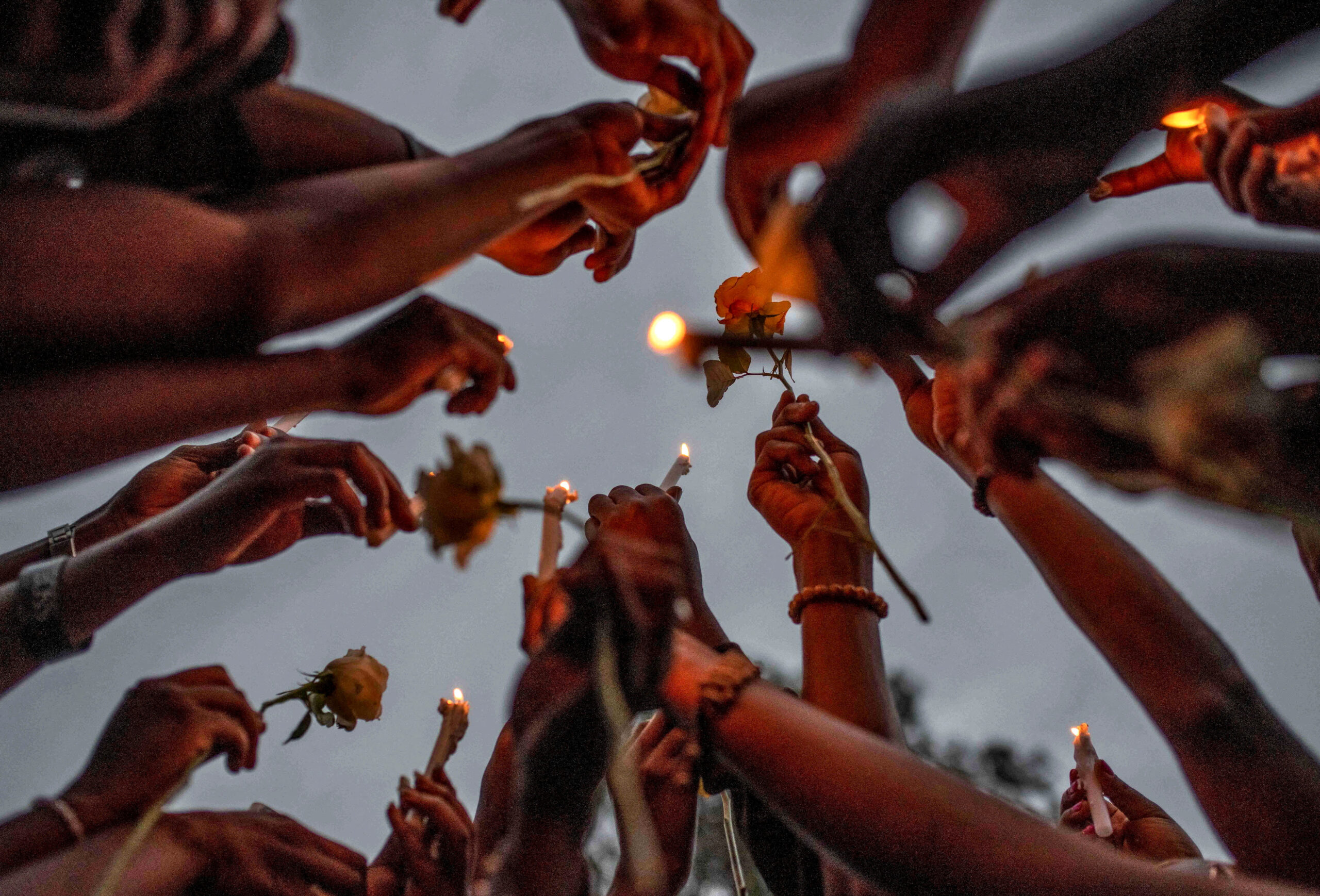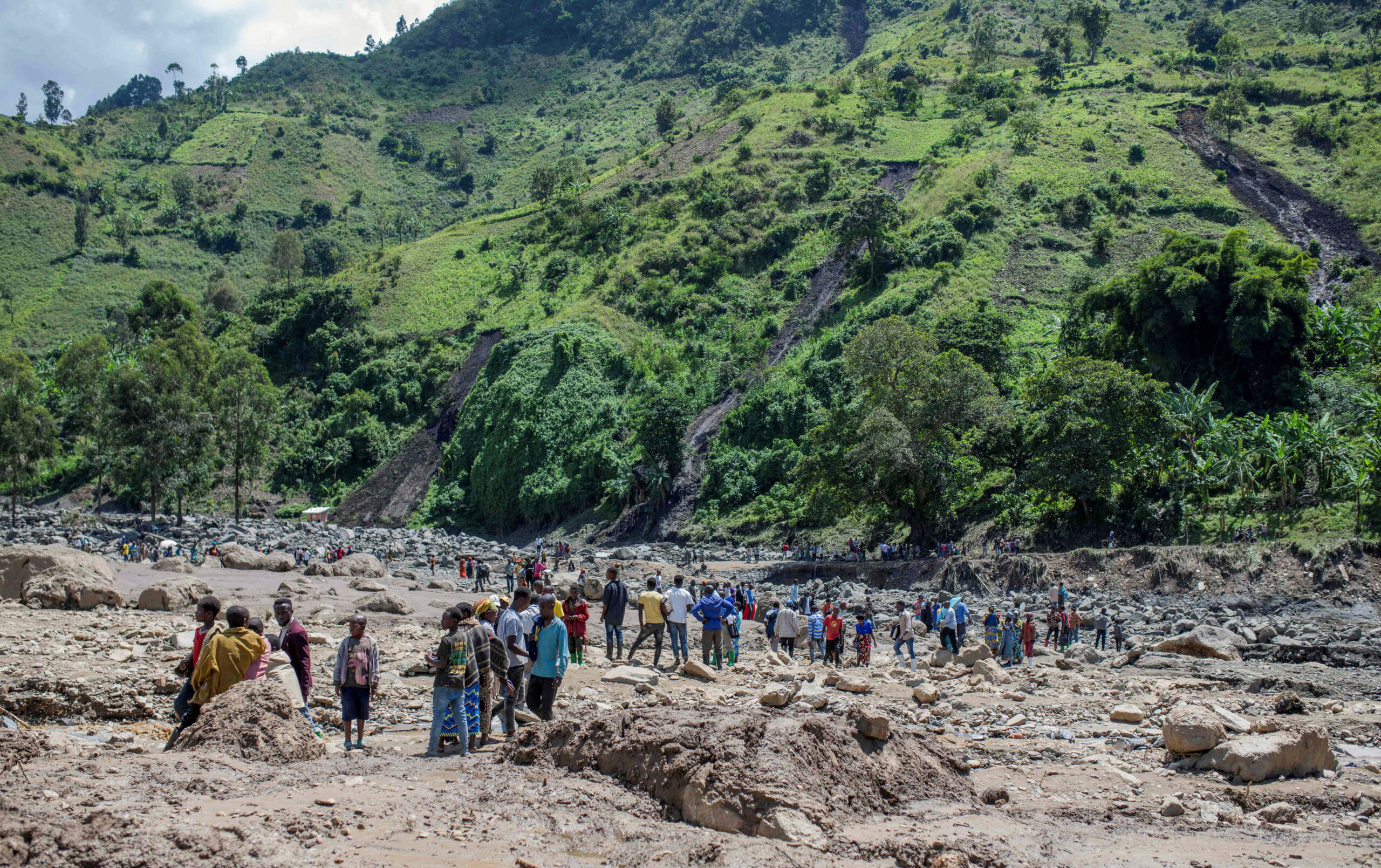By Erikas Mwisi Kambale and Sonia Rolley
(Reuters) – Ten people were killed in a landslide in eastern Democratic Republic of Congo’s Lubero territory overnight on Wednesday, local authorities said – further victims of recent heavy rains that have killed hundreds in floods in the broader region.
A fresh downpour loosened the earth on a hillside above a village in the Vuveyi Lac area, burying the victims as they slept in their houses below, said Alain Kiwewa, Lubero’s military administrator.
“As of now, the bodies are still under the ground. Work is underway to get them out,” he said by phone.
Read More: Over 5,500 still missing in flood-hit East Congo: local official
Meanwhile, insufficient resources have hampered efforts to recover the many bodies still buried in Kalehe territory in neighbouring South Kivu province, where flash floods swept through two villages last Thursday, submerging buildings in mud and debris.
The death toll from the Kalehe floods stands at 426 as of Wednesday morning with around 1,000 people still missing, according to Desire Yuma Machumu, head of the South Kivu Red Cross.

Aid workers expect to stay in the remote mountainous area for several weeks and are preparing for a possible cholera outbreak, which poses a major risk to survivors due to the lack of sanitation, he said.
Poverty and poor infrastructure make these communities more vulnerable to extreme weather such as heavy rain, which is becoming more frequent and intense in Africa due to climate change, according to United Nations climate experts.
Read More: Latest food insecurity report paints a gloomy picture of Southern Africa
Repeated recent downpours have also raised the water table in the broader region, increasing the likelihood of flooding, said meteorology and hydrology engineer Theodore Lokakao Ilemba.
“It’s everywhere in the Congo and in Rwanda, it worsens (the impact of) the rainfall and all pre-existing problems like water drainage and land use,” he said.
Rains also triggered flooding and landslides in neighbouring Rwanda last week, killing 130 people and destroying more than 5,000 homes.


